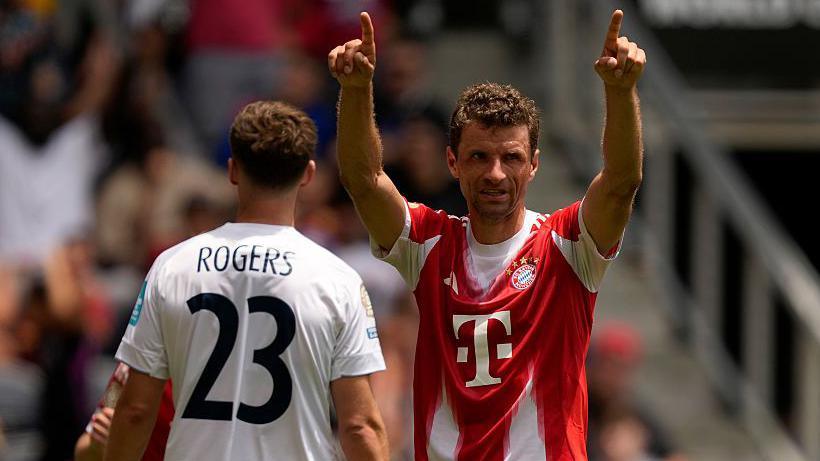The recent football match between Auckland City and Bayern Munich showcased one of the starkest mismatches imaginable in professional football. This contest highlighted the vast gulf in footballing stature and financial resources between amateur clubs and elite teams, as evidenced by the outcome of the match. Auckland City, a part-time club from New Zealand, faced off against Bayern Munich, the 34-time Bundesliga champions and six-time UEFA Champions League winners. The scene was set at the TQL Stadium in Cincinnati, but the encounter quickly revealed the impossibility of a genuine contest.
The match began ominously for Auckland when Kingsley Coman netted the first goal just five minutes into the game. Any preconceived notions about a potential upset quickly dissipated. By the end of the match, Bayern had not only dominated but had achieved a staggering 10-0 victory, marking a new record for the Club World Cup. The previous record hadn’t been touched since 2021 when similar double-digit scores had emerged, but for these New Zealanders, it represented a harsh reality crash. The German juggernauts had matched or threatened previous high-scoring records, but this truly was an alarming number against a visibly outmatched opponent.
Auckland City’s struggle was clear throughout the match. Bayern Munich launched a relentless assault, amassing a whopping 31 attempts at goal, 17 of which were on target, while maintaining possession of the ball 72% of the time. The New Zealanders could only muster a single attempt on Bayern’s goal, a low shot by Angus Kilkolly that was easily saved by veteran goalkeeper Manuel Neuer. This one-sided affair illustrated that the difference in quality between the two sides was not simply a footballing issue but a reflection of the grassroots nature of Auckland City compared to the professional pedigree of Bayern Munich.
From a financial standpoint, the disparity was equally shocking. Auckland City reportedly generated just over £491,700 in revenue for the previous financial year. In stark contrast, Bayern Munich boasted an astonishing revenue of £737 million. The player salaries further encapsulated this dissimilarity; Auckland’s players faced a salary cap of 150 New Zealand dollars per week—approximately £66—while Bayern’s star player Harry Kane reportedly earns around £400,000 weekly. This comparison starkly emphasizes how far removed Auckland’s players are from their elite counterparts, potentially needing over a century to match just one week’s worth of earnings.
In terms of market valuation, Auckland’s squad was valued at approximately €4.58 million (around £3.9 million), whilst Bayern’s valuation soared to €903.5 million (around £769 million). The implications of this financial divide highlight the challenges that smaller clubs face when attempting to compete on a global scale.
The mismatch extended beyond the pitch to the experiences of the teams and their supporters. The match brought significant media attention, with questions arising about the sustainability of such a competitive format moving forward. FIFA’s decision to double the Club World Cup teams to 32 has sparked controversy among players and leagues, suggesting that critics are becoming more vocal about the fairness and relevance of the competition structure.
Despite the overwhelming odds, Auckland City has historically earned their spot in the Club World Cup by winning the Oceania Champions League. The joy of participating on such a grand stage cannot be understated, as interim coach Ivan Vicelich remarked about the dream of amateur players competing against the world’s best. This reality brings bittersweet pleasure, with fans and players alike cherishing the experience despite the result.
As Bayern Munich looked forward to their next matchup against Boca Juniors, the conversation surrounding the integrity and competitiveness of such tournaments remained vital. Even with the excitement that participation brings, many, including commentators and fans, expressed a yearning for a more balanced framework that would allow for more competitive play across different tiers of professional football.



